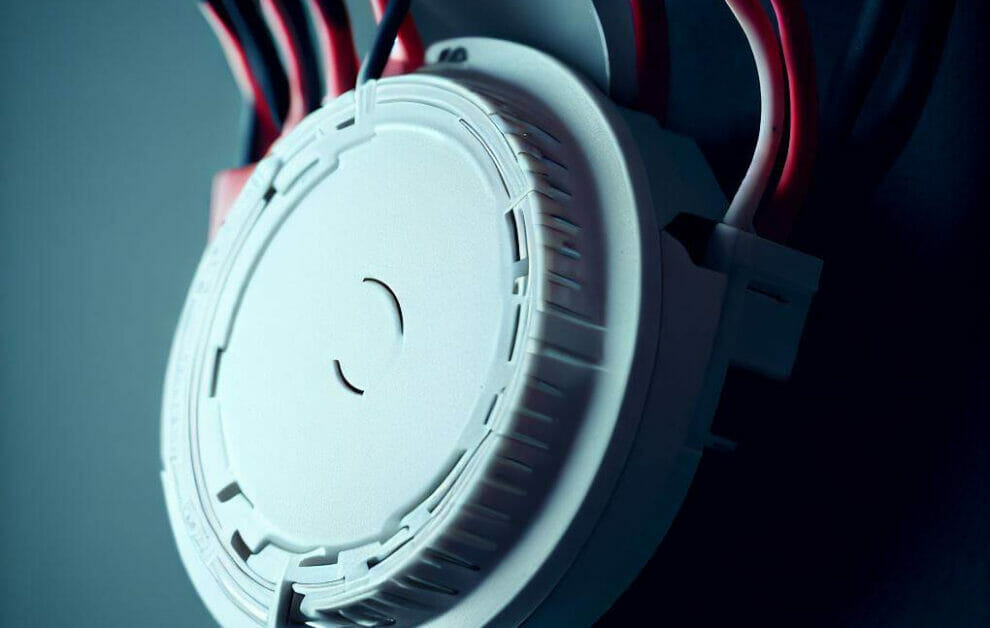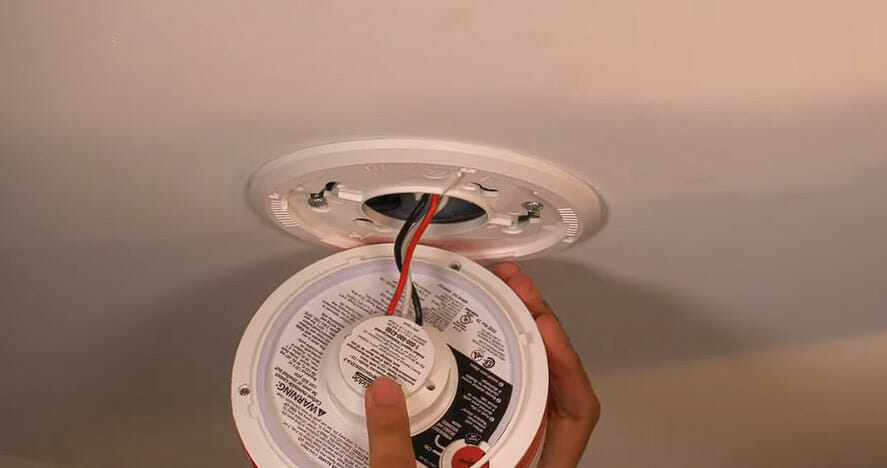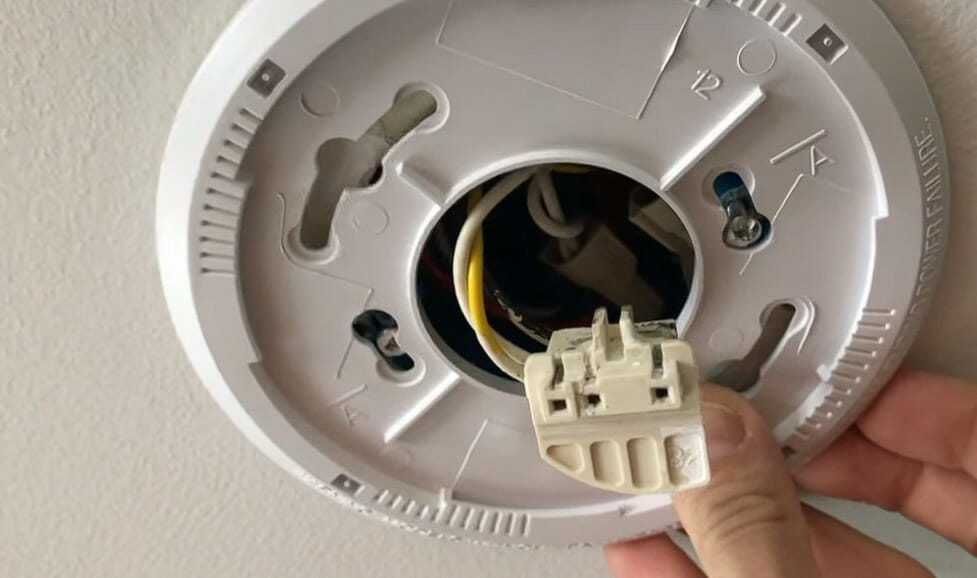Are Smoke Detectors Hard Wired? (Configuration Insights)

In this article, we’ll explore whether smoke detectors are typically hard-wired.
The quick answer is yes; most modern smoke detectors are indeed hard-wired. However, it’s not a universal rule, and exceptions can exist. Hardwired smoke detectors are connected directly to your home’s electrical system and have a backup battery in case of power outages. But then there are other types too! There are battery-operated smoke detectors that rely entirely on battery power. And some newer models even use wireless technology for interconnectivity.
Now you may ask, why does it matter whether they’re hard-wired? Understanding how your smoke detector operates could save you some hassle – think power outages and battery replacements! We’ll also look at other factors that might influence whether a detector is hard-wired or battery-operated.
Let’s dive in!
Are Smoke Detectors Hard Wired?
What’s the Electric Code Say?
In the United States, they use hardwired smoke detectors versus battery-powered ones. However, it’s important to note that as per the U.S. National Fire Protection Association (NFPA), new homes are generally required to have hardwired, interconnected smoke alarms installed as they offer a few advantages over battery-powered ones, such as the ability for all alarms to sound if one is triggered.
Nonetheless, battery-powered smoke detectors are common in older homes or as additions to hardwired systems.
Suppose you consider that many new constructions over the past few decades have been mandated to include hardwired detectors and take into account retrofitting of older homes. In that case, you might use a rough estimate where perhaps more than 50%+ smoke detectors are hardwired.
Battery-Powered Vs. Hard-Wired
Now, when it comes to smoke detectors, there are two main types that you’ll commonly come across – battery-powered and hard-wired. Each has its own set of pros and cons.
Let’s start with battery-powered smoke detectors.

These guys are usually the go-to choice for many homeowners because they’re pretty easy to install.
You can stick ’em anywhere you want – no need for fancy wiring or electrical knowledge. Plus, they still work during a power outage which is a big plus!
But the downside? You have to remember to change the batteries regularly. And let’s be honest here, how often do we forget about those until it starts chirping at us in the middle of the night?
On the flip side, we’ve got hard-wired smoke detectors.

These bad boys are connected directly to your home’s electrical system and come with backup batteries in case of a power outage.
Hard-wired detectors offer an added layer of protection because if one goes off, all interconnected alarms will also sound off, giving everyone in your house more time to react and get out safely.
But installation? Yeah, that’s not DIY-friendly unless you’re comfortable messing around with electrical wiring. Otherwise, you’ll need a professional electrician for this job.
Here’s a quick comparison:
| Battery-Powered | Hard-Wired | |
|---|---|---|
| Installation | Easy/DIY | Requires Professional Assistance |
| Power Supply | Batteries Only | Electrical System + Battery Backup |
| Interconnectivity | Not Usually Available | Typically Available |
So which one should you go for? Well, it depends on what suits your specific needs and circumstances best.
Type of Smoke Detector vs. Best Suited For
| Type of Detector | Best Suited For |
|---|---|
| Battery-Powered | Homes with fewer rooms, small apartments, and renters (for easy installation and removal) |
| Hard-Wired | Large homes, buildings with multiple floors, and newly constructed homes (which often require hard-wired detectors by code) |
| Hard-Wired with Battery Backup | Homes in areas prone to power outages |
How Hard-Wired Smoke Detectors Work

Ever wondered how that little device on your ceiling keeps you safe from potential fire hazards? Hard-wired smoke detectors are a bit more complex than regular battery-operated ones.
First, these detectors get their power straight from your home’s electrical system. They’re wired directly into it! This means they’ve got a constant supply of juice, so there’s no need to worry about batteries dying at inconvenient times.
But don’t panic if the power goes out – hard-wired smoke detectors have a backup battery for such scenarios. So, even in a blackout, they’ll still be able to pick up any signs of smoke or fire.
So how exactly does this nifty gadget detect smoke? Inside each detector is a small amount of radioactive material between two electrically charged plates.
These create an ionization chamber that is sensitive to airborne particles. When smoke enters this chamber, it interrupts this flow of ions triggering the alarm – pretty cool, right?
And guess what? If one alarm detects danger and starts blaring its warning cry, all the connected alarms will go off too! This interconnected feature ensures that everyone in the house gets alerted immediately, regardless of where they are.
Here’s a quick rundown:
- Power Source: Direct wiring from the home’s electrical system
- Backup Power: Inbuilt battery for emergencies
- Smoke Detection Mechanism: Ionization Chamber
- Interconnected Feature: One alarm triggers all others
Hard-wired smoke detectors give us an extra layer of security and peace of mind knowing we’re protected 24/7 against sudden fire outbreaks.
So there you have it, folks! The magic behind how hard-wired smoke detectors keep us safe day and night!
Frequently Asked Questions
Are all smoke detectors hard-wired?
No, not all smoke detectors are hard-wired. Some are battery-operated, and some newer models use wireless technology for interconnectivity.
What are the benefits of hard-wired smoke detectors?
Hard-wired smoke detectors are connected to your home’s electrical system and have backup batteries. They provide an added layer of protection due to their interconnectivity—if one alarm goes off, all interconnected alarms will also sound.
Can I install a hard-wired smoke detector myself?
Installing a hard-wired smoke detector generally requires electrical knowledge. If you’re uncomfortable with this, hiring a professional electrician is recommended.
What’s the mechanism behind hard-wired smoke detectors?
Your home’s electrical system powers hard-wired smoke detectors. They contain an ionization chamber sensitive to airborne particles. When smoke enters the chamber, it disrupts the flow of ions, triggering the alarm.
Can hard-wired smoke detectors be interconnected with battery-operated ones?
Interconnectivity is typically a feature of hard-wired detectors. Some newer models of battery-operated detectors may offer this feature, but generally, this is not the norm.
References
Video References
Hayden Homes
Daru Dhillon
DIY with Michael Borders
